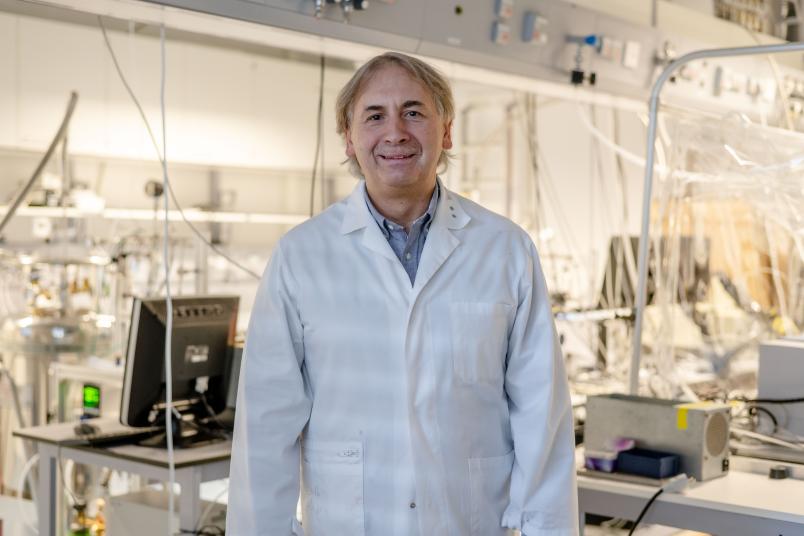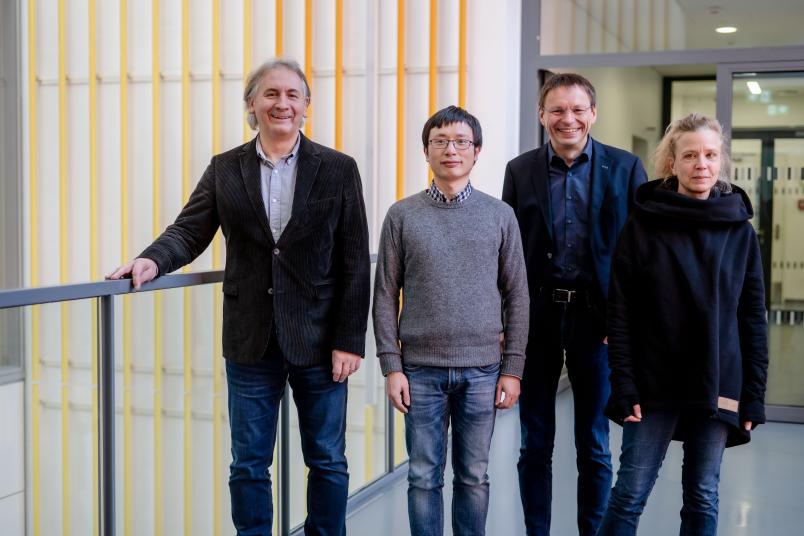
Biology
A poison helps to understand H2-producing biocatalysts
The toxic cyanide molecule attacks H2-generating enzymes, but at the same time provides new insights into catalysis.
In nature, enzymes termed hydrogenases are capable of producing molecular hydrogen (H2). Special types of these biocatalysts, so-called [FeFe]-hydrogenases, are extremely efficient and therefore of interest for biobased hydrogen production. Although scientists have learned a lot about how these enzymes work, many details remain to be completely understood. A research team of the Photobiotechnology group at Ruhr University Bochum, Germany, headed by Dr. Jifu Duan and Professor Thomas Happe succeeded in filling a scientific gap. The researchers showed that external cyanide binds to the [FeFe] hydrogenases and inhibits hydrogen formation. In the process, they detected a structural change in the proton transport pathway, which helps to understand the coupling of electron and proton transport. They reported their findings in the journal “Angewandte Chemie” of 4 December 2022.
A sophisticated internal catalyst
To generate H2, these biocatalysts transfer electrons to protons, employing a sophisticated structure as internal catalyst. This so-called H-cluster contains electronically active iron ions that are bound to what most people know as toxins: carbon monoxide and cyanide. However, although internal carbon monoxide and cyanide are crucial for the high activity of hydrogenases, additional external carbon monoxide binds to the H-cluster and prevents its H2 production. “Interestingly, cyanide is also a well-known inhibitor of iron-containing biocatalysts,” says Jifu Duan. “And yet, its effect on [FeFe]-hydrogenases has hardly been analysed before.”

The Bochum-based research team closed this scientific gap. The researchers showed that external cyanide binds to and inhibits [FeFe]-hydrogenases. In collaboration with Professor Eckhard Hofmann, head of the protein crystallography group at RUB, the team obtained the structure of H2-producing biocatalysts to which external cyanide was bound. “The high-resolution structure in combination with spectroscopic analyses tells us that the external cyanide directly binds to the H-cluster, similar to other inhibitors studied so far,” says Jifu Duan. “This explains why the hydrogenase is inactive after cyanide treatment.”
Coincidental capture of a transient state
When the researchers took a detailed look into the structure of the cyanide-poisoned hydrogenase, they found a surprise. They observed structural changes in the proton transport pathway that is required to guide the protons that will become H2 to the H-cluster. “This conformation has been suggested to be vital for efficient proton shuttling, but it had never been observed structurally. Coincidently, the cyanide binding helped us to capture such a transient state”, says Jifu Duan. “These findings are important for researchers to understand the coupling of electron and proton transport which is not only relevant for H2-generating enzymes, but many additional biocatalysts,” concludes Thomas Happe.